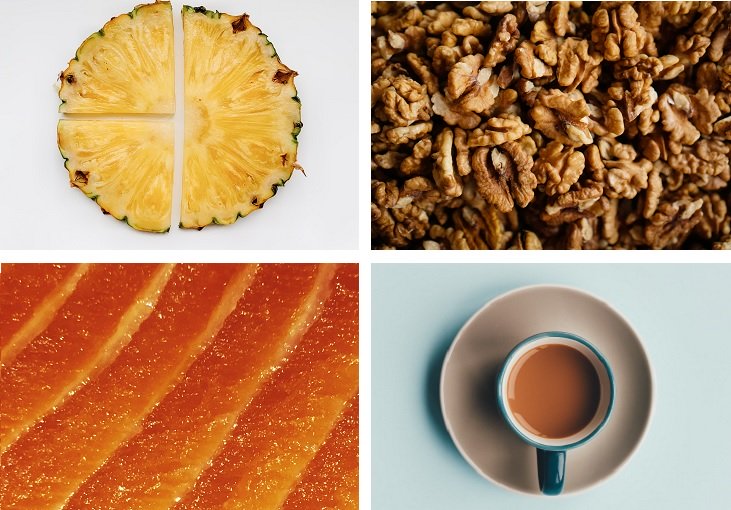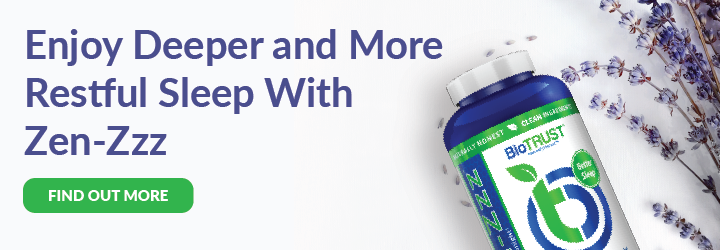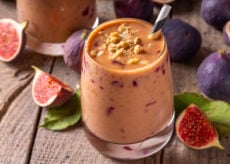Foods That Can Help Boost Serotonin Levels

It’s known as a “feel-good” or “happy” chemical. And yes, serotonin does play a crucial role in mood and feelings of well-being. That’s just the tip of the iceberg, though, because, boy oh boy, there’s quite a bit more to this body chemical, which acts as both a neurotransmitter and hormone. What exactly does serotonin do to the body? What happens when you don’t have enough serotonin? How can you increase serotonin…is it even a good idea to raise levels of serotonin? Are there foods that boost serotonin? Let’s dig into all these questions and more.

What Does Seratonin Do?
Serotonin is best known for its role as a neurotransmitter in the central nervous system (CNS) where it’s a major player in mood, feelings of well-being, anxiety, and happiness. For this reason, it’s often called a “feel-good chemical” or “happy hormone.”
But that’s just one of the many faces of serotonin. In the brain, for instance, it’s also crucial for a focused mental outlook.
Serotonin also plays a powerful role in gut health. Consider, for example, that 95% of the body’s serotonin is found in the gut. 1
Ever heard of the gut-brain connection? Well, serotonin is the neurotransmitter that allows for communication between the GI tract and the CNS—the gut-brain connection liaison, if you will.
From this standpoint, serotonin regulates bowel function and intestinal motility. Too little serotonin usually means constipation, distension, and bloating; whereas too much will have you running to the toilet.
Serotonin also plays a powerful role in appetite management. It acts as a satiety hormone, which means it helps tell your brain when you’re full. 2
On the flip side, low serotonin typically drives hunger, particularly cravings for high-carb junk foods. This is because simple carbs cause a “serotonin rush.” In fact, some researchers believe people overeat due to “serotonin hunger.” 3
Serotonin is also implicated in the sensations of pain and itch. But its effects are a bit nuanced. Basically, it can be involved in both the perception and inhibition of pain, depending on the type of receptor and area of the body. 4
Serotonin can also be found in high concentrations in platelets where it plays a major role in blood clotting. Serotonin leads to vasoconstriction, reduced blood flow, and aids in the formation of blood clots.
Along these lines, serotonin affects various aspects of heart and circulatory function, including blood pressure modification.
Here’s some useless trivia for you: Serotonin was discovered by Rapport et al. in 1948 as a vasoconstrictor. 5 This actually lends some insight into how low serotonin levels may contribute to migraine headaches.
Serotonin also plays a role in the immune system. As a matter of fact, almost all immune cells have at least one serotonin component—a serotonin receptor or transporter. 5
Serotonin also plays a critical role in sleep. In fact, the body literally uses serotonin as a precursor to the well-known “sleep hormone” melatonin. 6 Said differently, low serotonin is usually a surefire recipe for a rough night of sleep. Speaking of sleep…make sure you read all the way to the end to see if it’s really the Thanksgiving turkey that makes you tired.
And there’s one more thing related to sleep: Serotonin also plays a role in sexual function. Believe it or not, low serotonin levels (such as in the intoxicated state) are thought to contribute to the associated increase in libido.
On the other hand, a common side effect of drugs that raise levels of serotonin is a reduction in libido as well as sexual function. 7
To summarize, a serotonin deficit can lead to…
- Mood issues
- Anxious feelings
- Food cravings (especially for carbs)
- Brain fog
- Migraines
- Difficulty sleeping
- Constipation
Now, let’s not go all extreme, thinking the polar opposite is a gold mine. It’s not. Too much serotonin can also be problematic. For example, excess serotonin can lead to… 8
- Diarrhea
- Poor appetite
- High blood pressure
- Rapid heartrate
- Irritability
- Impulsivity
- Shivering
Like most things in the body, healthy serotonin metabolism is key. Obviously, too little serotonin is bad news. But if you’re constantly putting the serotonin pedal to the metal, you’re setting yourself up for trouble too.
Before moving along, READ THIS. If your mood is significantly impacting your life, it’s time to see a doctor. And if you’re already taking a medication(s) for a related health issue, don’t stop without consulting your health-care professional.
In other words, the information in this article is for information purposes only, and it should never be used to diagnose, treat, cure, or prevent any medical conditions. And it shouldn’t be used as a replacement for conventional medical treatment.

What Boosts Seratonin Levels?
While genetics can certainly play a role (affecting enzymes that break down serotonin, for example), there are many factors within our control that can impact serotonin levels. Diet is indeed among them, but before we get to foods that boost serotonin, let’s reveal some key behavioral and lifestyle strategies that can really move the needle.
Stress Management. When you’re stressed, your body will use serotonin at a faster rate. Said differently, stress depletes serotonin. 9 To support healthy serotonin levels, make sure you’ve got a solid toolbox filled with stress-management tactics, like grounding, forest bathing, meditation, yoga, gratitude, and prayer. Speaking of meditation…
Meditation. Research continues to peel back the many layers of benefits associated with meditation, which has been shown to help uplift mood and improve feelings of well-being. Meditation works through various avenues, one of which is raising serotonin levels. Yoga offers similar mood-boosting benefits. 10
Acupuncture. Acupuncture is becoming one of the more widely available and used therapies in alternative medicine. While the science is just now beginning to catch up with age-old wisdom, there is evidence that acupuncture stimulates the release of serotonin. 11
Positive Mental Attitude. Ever heard the saying, “Fake it ‘til you make it”? Maybe more often than you’d like? But when it comes to serotonin, there’s research showing that this approach has merit. Specifically, one study found that self-induced changes in mood (e.g., “Smile ‘til it hurts”) can influence serotonin production. 12 In other words, the relationship between serotonin and mood seems to be a two-way street, with serotonin affecting mood and mood influencing serotonin.
Social Interaction. Much like mood, the relationship between serotonin and social interaction is a two-way street. On one hand, serotonin levels play a key role in shaping social responses. On the other hand, serotonin is highly responsive to social influences. In other words, a healthy social support network and nourishing connections are important for healthy serotonin levels. 13
Exercise. This one should be in all CAPS as it’s so dang important and effective for promoting healthy serotonin levels. A recent comprehensive review said, in no uncertain terms, that the antidepressant and anxiolytic effects of exercise have been clearly demonstrated. 14
Exercise is so powerful, in fact, that health and medical organizations put it at the top of the totem pole above medications for treating depression. The beneficial effects of exercise on serotonin levels likely trace back to an increase in levels of free tryptophan that can cross the blood-brain barrier (i.e., BCAA depletion).
Sun Exposure. You may have heard of bright-light therapy being used for mood disorders. Along those lines, one very powerful strategy to raise serotonin levels is daytime sun exposure. 15 Some researchers suggests that our modern-day, bright-light-deprived society explains the prevalence of mood disorders.
Foods That Boost Seratonin Levels
When it comes to foods that boost serotonin, the list will look awful similar to the nutrients and foods that help boost mood. There are several key nutrients that bear recognition and give rise to the foods that boost serotonin levels.
Protein
The essential amino acid tryptophan is a building block for serotonin. Along those lines, a healthy tryptophan status is critical to support healthy levels of serotonin. That means high-quality protein sources like fatty fish, grass-fed beef, poultry, eggs, and dairy are important.
Having said that, tryptophan, when consumed with other amino acids as it is in protein-rich foods, isn’t directly converted to serotonin. When it’s consumed alone (on an empty stomach), however, tryptophan is usually converted to serotonin.
As explained by Simon Young, “Although purified tryptophan increases brain serotonin, foods containing tryptophan do not. This is because tryptophan is transported into the brain by a transport system that is active toward all the large neutral amino acids. And tryptophan is the least abundant amino acid in protein. There is competition between the various amino acids for the transport system, so after the ingestion of a meal containing protein, the rise in the plasma level of the other large neutral amino acids will prevent the rise in plasma tryptophan from increasing brain tryptophan.” 14
So, can we please throw out the myth that turkey makes you tired because of its tryptophan content?
The reason people pass out after a Thanksgiving feast is because they overeat high-carb foods…which spike levels of the hormone insulin…which increases brain levels of tryptophan…which is converted to serotonin.
Smart Carbs
Let me reiterate that: The fastest way to increase serotonin levels via diet is to consume carbs. Of course, we want to focus on smart carbs, such as root vegetables, tubers, rice, oats, and legumes—not processed junk.
On the other side of the coin, low-carb diets tend to precipitate low serotonin since levels are triggered by carb-rich foods. 16
Pineapple, kiwi, bananas, walnuts, and pecans are all said to be serotonin-rich foods. 17 While this is true, these foods are unlikely to improve mood because of their serotonin content as it will not cross the blood-brain barrier. Having said that, these nutrient-dense foods may help support healthy serotonin levels through other pathways. Plus, it’s possible their serotonin content may have beneficial effects within the GI tract.
Vitamin D
Vitamin D helps the body make more serotonin. More specifically, vitamin D regulates the conversion of the essential amino acid tryptophan into serotonin. 18 While soaking up the sun with as much bare skin exposed as the law (or your pride) allows is the best way to elevate levels of vitamin D, it can also be found in foods like fatty fish, eggs, and mushrooms.
Omega-3s
While vitamin D helps control the production of serotonin, omega-3 fatty acids (from fish oil, for example) help control serotonin action. In other words, omega-3s help serotonin work more effectively and efficiently. 18
When speaking of omega-3s here, we’re talking more specifically about the long-chain marine-derived omega-3s EPA and DHA (not the plant-based ALA). The best sources of EPA and DHA are fatty fish and seafood, such as salmon, sardines, anchovies, mackerel, trout, oysters, and mussels, for example.
Folate, Niacin, Vitamins B6 & C
Cofactors, such as folate, B6, vitamin C, and niacin can all promote the production of serotonin from L-tryptophan. The best sources include:
- Folate: lentils, beans, asparagus, and dark leafy greens
- B6: wild salmon, tuna, turkey, chicken, beef, potatoes, sunflower seeds, spinach, and bananas
- Vitamin C: citrus fruits (e.g., oranges, grapefruit, clementine, and tangerines), bell peppers, bok choy, broccoli, Brussels sprouts, strawberries, pineapple, kiwifruit, cauliflower, dark leafy greens, cabbage, and tomatoes
- Niacin: liver, chicken, beef, turkey, salmon, anchovies, and pork
Iron
Iron is also a cofactor in serotonin production, and low levels of iron may contribute to low serotonin. 19 Beef is the best source of dietary iron as it is a much more readily absorbed form (i.e., heme). However, iron can also be obtained from plant-based foods (i.e., non-heme), such as sesame seeds, pumpkin seeds, and spinach.
Magnesium and Zinc
Magnesium and zinc also support the body’s ability to convert tryptophan to serotonin. The best dietary sources of zinc are pumpkin seeds, sesame seeds, seafood (e.g., oysters, scallops, shrimp), beef, spinach, and cashews. Meanwhile, you can get magnesium in pumpkin seeds, darky leafy greens, whole grains, almonds, cashews, and legumes.
Gut Health
Considering that 95% of the body’s serotonin is found in the digestive tract, it makes sense to pay attention to gut health. This means including plenty of probiotics from fermented foods (e.g., yogurt, sauerkraut, kimchi, kombucha, etc.) as well as prebiotics (e.g., fermentable fibers and polyphenols).
Coffee and Green Tea
Coffee and green tea may also help support healthy serotonin levels. In the case of the latter, green tea contains a compound called L-theanine, which helps elevate serotonin levels, which may explain why green tea is associated with improved mood. 20 In the case of coffee, it seems like caffeine itself may help raise serotonin levels. And as any coffee drinker can attest, coffee offers an immediate mood lift. 21
CBD
CBD is pretty nifty when it comes to supporting the role and effects of serotonin. On one hand, CBD binds to the serotonin receptor, and that’s one way it exerts its powerful stress-reducing and relaxing properties. On the other hand, CBD seems to normalize serotonin levels. 22
Foods That Boost Seratonin: Recap
Serotonin is complicated, as with so many things in the body. Yes, it plays a profound role in mood and feelings of well-being, but that’s just the beginning. While low levels of serotonin can lead to significant problems, the other extreme is also troublesome. As with most things in the body, it’s about a healthy balance, which can be promoted through a range of healthy behavior and lifestyle choices, including a healthy, nutrient-dense diet that contains foods that boost serotonin.








